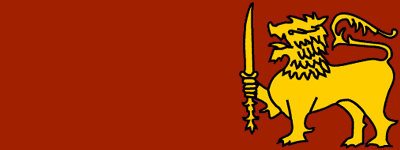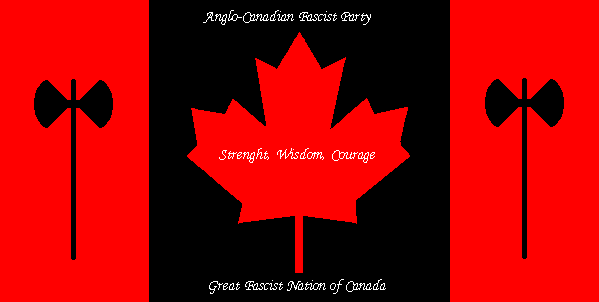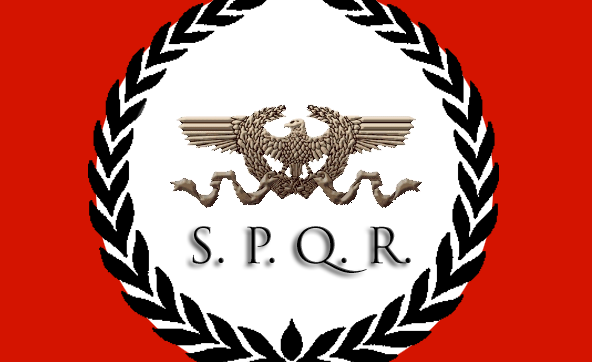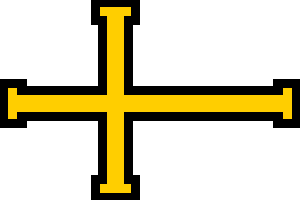Jason The King
Deity
JNES.N: New Times
Introduction
In a world a long time ago, a fifth world war broke out one that would change the face of the planet. The long rivalries between Europe and Egypt finally break into an all-out war, both parties bringing allies in from across the globe. When all looked bleak for the Europeans, a last alliance of French and Spanish break the lines in Turkey, leading to the storming of Sumer. The once-magnificent, and ancient of all civilizations, falls to the combined Allies. The Sinai is then open for assault; the legendary Suez Canal in Egypt is taken. Air superiority is achieved for the allies, and finally Egypt, after being the worlds superpower and won three world wars, falls to the Allies. Sumer is split up; giving birth to Israel, Kazakhstan, and the southern part of the province of Iran is still under Danish occupation. Congo and Battahira are given land as awards, and finally the world is at peace; though in shambles. The once-popular socialist movement is gaining momentum in the poor nations, and fascist groups in Spain, Denmark, and Britain are once again gaining power. Will the world turn back to its pre-war world, or will it learn from its mistakes and choose a stable government? Welcome to JNES.N: New Times.
Before We Get Started
Obviously these rules are susceptible to change. Yes, this map, and most of the history, is based off of stJNES4: The Normal Story NES. However, some of the history of the game might be twisted, I will not follow exactly the same way stJNES4 did, but I will do my best to keep the history in mind. I want everyone to have fun, and please do not see the rules as a boundary in which to play in. If you want to try something new, anything, just do it and we will see how it works out.
It Is Time
These rules are a lot like stJNES8 rules, and so will hopefully lead to a more dynamic game. I may change some of the rules later on, but for now, here they are:
The feature of this NES is the economy and numerous domestic stats that will play a much larger role in your nations affairs. You do not have to be an international superpower now to enjoy the same gaming as a builder nation. Do you want to forget about your domestic issues and just rule a vast empire, collecting taxes from the very whim of military might? Or are you content on your small island, filling each home with items from across the globe, and having the streets paved?
Rules
Economy

So Whats New?
Finally, a different economy system for the common story NES. Your economy is based off of your tax, collected from your citizens. Basically, the economy is by numbers, and is based upon the purchase power your populace. This plainly means that even a small country, given that it is rich, can make the same amount of money a larger nation does. So the main idea is to keep your people rich and happy.
So how does it work?
So, you can use every bit of your economy each turn. Say your economy is at 3; you can use it on any number of your stats, one economy point per stat, including your army. The way you raise your economy is by conquering new land, generally having your population increase, trade more, make your people rich somehow, or anything else, be creative. However, it happens gradually. Its not like the old system, where you just say increase economy or, not even when you give a reason. It happens in stories, in diplomacy, or in side notes. It may even happen in a random event. There is a good chance your economy will increase also when you do things your people want, which will be expressed in updates.
Theres more!?
You may also put aside money, into a treasury. Sort of like a bank account, you can use this money whenever you need it (war, depression, etc.). There is no max that you can have in your treasury, no limit to the time you can have it there, and there is no way money can leave its treasury, not even in a random event. No one can steal it either.
Military

Army
Your army is represented in divisions, brigades, etc. You can recruit any kind of men in your army, as long as you have the technology for it. As of right now, until a new breakthrough is made, all units are available to all nations though some will be better equipped, or a better design, then others. Also, the larger the army you have, the lesser your economy if you want to keep them trained and equipped well. If you wish to lessen the quality of your military, then say so, and you will gain some economy. Asterisks near a military means it is better trained then normal.
Navy
Same thing as the army, but the different ship designs may take some research, and what helps research more then money? Also, your need for the certain design may aid in your research.
Training. Will that finally be in this JNES?
Yes, and from the very beginning as well. Train your troops by either paying for it (1 econ. point per kind of unit (i.e. one for all your infantry, one for your tanks, etc.)), or by using them in combat many consecutive times. Training levels: Conscript, Militia, Good, Veteren, Elite. If you do not use them often, the training will begin to degrade. Also, you will not have good trained troops if your economy is crappy.
Equipped with what?
The equipment of your troops will depend upon the economy of your nation. That simple.
Conscription and Mobilization?
You may conscript infantry into your army, which will fight much worse then regular infantry and will hurt your moral at home. Mobilization costs an economy point, and one turn must pass until your army is fully mobilized. This gives a GREAT advantage in battle. If the troops are not used within one turn of being fully mobilized, they will return back to normal unless you pay another economy point to keep them ready.
Miscellaneous Stats

Education
Of course theres education! What does it do? Guess. For those who are new, it helps with technology advancement. The backfire is that if your people become too educated, they may want a more representative type government, or their own nation. Your nation could also be at the forefront of scientific discovery and prosperity. Education drops when you jump a tech. level, or when you stop paying attention to it.
Infrastructure
Includes your inner-city roads, sewers, homes, canals, highways, air ports, buildings, etc. The more you invest into this, the better your country will be in those terms, the happier your people, and the more modern your nation will be. It will help with the economy as well, at some point, and will lead to higher populations as more migrate to live in such a modern nation. This, also with trade and defense, may determine how fast you can build ships.
Trade
The more you invest in this, the larger your markets become, and also helps with the roads and ports that connect to other nations. This also enlarges your ports to handle more trade. It has a huge impact on how much you can utilize of other trading partners if you have ten partners, but only a size 1 trading level, then you are wasting much of your revenue you could gain from the trade. But if you have 10 partners and size 15 trading, then you will be making much money.
Industry
When you invest on this, you invest in the ability of your nation to make war materials and produce consumer goods (tank factories, oil refinery). This will have an impact on how much army and navy you are able to raise per economy level.
Defense
The things under the defense budget include your city walls, forts, and watchtowers. It may also include your stationary missile defenses, and your military bases. With a higher defense budget, you will put up a heavier fight to an invader. It also can cover the National Guard of your nation the modern militia.
Roads
Well, this isnt really a stat in your template, but I thought this would be the best place to mention it. You can build roads to connect your cities, and to connect to a neighbor. Roads take time to build, and will be represented on the map. It is one econ. point, not matter how long the road is, to build one road from one city to another. If you connect to a neighbor, trade will be stronger.
Projects

Uh oh, what are you going to do with our Projects?
Well, there are no wonders in this game, they are more like projects. These are used to, over time, develops certain things in your country. For example, you can have a naval expansion project, which over time gains you a few ships per update, and cost you nothing. You can have one that slowly repairs your infrastructure, like an International Highway Project. It could also be research: like the Manhattan project. Only one per nation per 15 turns.
Unique Units

Okay, so whats the deal?
Simple, one per age, and will be listed among with your normal army. The more you write about your UU, the more affective it will be.
Technology Levels
Is based on scale from 1-10, one being the best. You can raise it by investing in your education (which makes your people happier too).
Cities
Cities are represented on the map based on their importance to the nation, the region, and the people. Should a city be taken from you, it will hurt your moral. Should the region around the city be torn apart, destroyed, or damaged, it may lead to the populace leaving the city, and low moral. Cities are also centers of industrialization should they be bombed, taken, or blockaded, then it could hurt the industry of the nation.
Moral
Moral has a lot to do with your economy, the way your people feel. If you do what the people want, your moral will raise, and so will your economy. Levels are: Terrible-awful-bad-hurintg-okay-better-good-great-oustanding.
Stories always help your nation, because if I get to know your nation better, so will the world.
End
Introduction
In a world a long time ago, a fifth world war broke out one that would change the face of the planet. The long rivalries between Europe and Egypt finally break into an all-out war, both parties bringing allies in from across the globe. When all looked bleak for the Europeans, a last alliance of French and Spanish break the lines in Turkey, leading to the storming of Sumer. The once-magnificent, and ancient of all civilizations, falls to the combined Allies. The Sinai is then open for assault; the legendary Suez Canal in Egypt is taken. Air superiority is achieved for the allies, and finally Egypt, after being the worlds superpower and won three world wars, falls to the Allies. Sumer is split up; giving birth to Israel, Kazakhstan, and the southern part of the province of Iran is still under Danish occupation. Congo and Battahira are given land as awards, and finally the world is at peace; though in shambles. The once-popular socialist movement is gaining momentum in the poor nations, and fascist groups in Spain, Denmark, and Britain are once again gaining power. Will the world turn back to its pre-war world, or will it learn from its mistakes and choose a stable government? Welcome to JNES.N: New Times.
Before We Get Started
Obviously these rules are susceptible to change. Yes, this map, and most of the history, is based off of stJNES4: The Normal Story NES. However, some of the history of the game might be twisted, I will not follow exactly the same way stJNES4 did, but I will do my best to keep the history in mind. I want everyone to have fun, and please do not see the rules as a boundary in which to play in. If you want to try something new, anything, just do it and we will see how it works out.
It Is Time
These rules are a lot like stJNES8 rules, and so will hopefully lead to a more dynamic game. I may change some of the rules later on, but for now, here they are:
The feature of this NES is the economy and numerous domestic stats that will play a much larger role in your nations affairs. You do not have to be an international superpower now to enjoy the same gaming as a builder nation. Do you want to forget about your domestic issues and just rule a vast empire, collecting taxes from the very whim of military might? Or are you content on your small island, filling each home with items from across the globe, and having the streets paved?
Rules
Economy

So Whats New?
Finally, a different economy system for the common story NES. Your economy is based off of your tax, collected from your citizens. Basically, the economy is by numbers, and is based upon the purchase power your populace. This plainly means that even a small country, given that it is rich, can make the same amount of money a larger nation does. So the main idea is to keep your people rich and happy.
So how does it work?
So, you can use every bit of your economy each turn. Say your economy is at 3; you can use it on any number of your stats, one economy point per stat, including your army. The way you raise your economy is by conquering new land, generally having your population increase, trade more, make your people rich somehow, or anything else, be creative. However, it happens gradually. Its not like the old system, where you just say increase economy or, not even when you give a reason. It happens in stories, in diplomacy, or in side notes. It may even happen in a random event. There is a good chance your economy will increase also when you do things your people want, which will be expressed in updates.
Theres more!?
You may also put aside money, into a treasury. Sort of like a bank account, you can use this money whenever you need it (war, depression, etc.). There is no max that you can have in your treasury, no limit to the time you can have it there, and there is no way money can leave its treasury, not even in a random event. No one can steal it either.
Military

Army
Your army is represented in divisions, brigades, etc. You can recruit any kind of men in your army, as long as you have the technology for it. As of right now, until a new breakthrough is made, all units are available to all nations though some will be better equipped, or a better design, then others. Also, the larger the army you have, the lesser your economy if you want to keep them trained and equipped well. If you wish to lessen the quality of your military, then say so, and you will gain some economy. Asterisks near a military means it is better trained then normal.
Navy
Same thing as the army, but the different ship designs may take some research, and what helps research more then money? Also, your need for the certain design may aid in your research.
Training. Will that finally be in this JNES?
Yes, and from the very beginning as well. Train your troops by either paying for it (1 econ. point per kind of unit (i.e. one for all your infantry, one for your tanks, etc.)), or by using them in combat many consecutive times. Training levels: Conscript, Militia, Good, Veteren, Elite. If you do not use them often, the training will begin to degrade. Also, you will not have good trained troops if your economy is crappy.
Equipped with what?
The equipment of your troops will depend upon the economy of your nation. That simple.
Conscription and Mobilization?
You may conscript infantry into your army, which will fight much worse then regular infantry and will hurt your moral at home. Mobilization costs an economy point, and one turn must pass until your army is fully mobilized. This gives a GREAT advantage in battle. If the troops are not used within one turn of being fully mobilized, they will return back to normal unless you pay another economy point to keep them ready.
Miscellaneous Stats

Education
Of course theres education! What does it do? Guess. For those who are new, it helps with technology advancement. The backfire is that if your people become too educated, they may want a more representative type government, or their own nation. Your nation could also be at the forefront of scientific discovery and prosperity. Education drops when you jump a tech. level, or when you stop paying attention to it.
Infrastructure
Includes your inner-city roads, sewers, homes, canals, highways, air ports, buildings, etc. The more you invest into this, the better your country will be in those terms, the happier your people, and the more modern your nation will be. It will help with the economy as well, at some point, and will lead to higher populations as more migrate to live in such a modern nation. This, also with trade and defense, may determine how fast you can build ships.
Trade
The more you invest in this, the larger your markets become, and also helps with the roads and ports that connect to other nations. This also enlarges your ports to handle more trade. It has a huge impact on how much you can utilize of other trading partners if you have ten partners, but only a size 1 trading level, then you are wasting much of your revenue you could gain from the trade. But if you have 10 partners and size 15 trading, then you will be making much money.
Industry
When you invest on this, you invest in the ability of your nation to make war materials and produce consumer goods (tank factories, oil refinery). This will have an impact on how much army and navy you are able to raise per economy level.
Defense
The things under the defense budget include your city walls, forts, and watchtowers. It may also include your stationary missile defenses, and your military bases. With a higher defense budget, you will put up a heavier fight to an invader. It also can cover the National Guard of your nation the modern militia.
Roads
Well, this isnt really a stat in your template, but I thought this would be the best place to mention it. You can build roads to connect your cities, and to connect to a neighbor. Roads take time to build, and will be represented on the map. It is one econ. point, not matter how long the road is, to build one road from one city to another. If you connect to a neighbor, trade will be stronger.
Projects

Uh oh, what are you going to do with our Projects?
Well, there are no wonders in this game, they are more like projects. These are used to, over time, develops certain things in your country. For example, you can have a naval expansion project, which over time gains you a few ships per update, and cost you nothing. You can have one that slowly repairs your infrastructure, like an International Highway Project. It could also be research: like the Manhattan project. Only one per nation per 15 turns.
Unique Units

Okay, so whats the deal?
Simple, one per age, and will be listed among with your normal army. The more you write about your UU, the more affective it will be.
Technology Levels
Is based on scale from 1-10, one being the best. You can raise it by investing in your education (which makes your people happier too).
Cities
Cities are represented on the map based on their importance to the nation, the region, and the people. Should a city be taken from you, it will hurt your moral. Should the region around the city be torn apart, destroyed, or damaged, it may lead to the populace leaving the city, and low moral. Cities are also centers of industrialization should they be bombed, taken, or blockaded, then it could hurt the industry of the nation.
Moral
Moral has a lot to do with your economy, the way your people feel. If you do what the people want, your moral will raise, and so will your economy. Levels are: Terrible-awful-bad-hurintg-okay-better-good-great-oustanding.
Stories always help your nation, because if I get to know your nation better, so will the world.
End










 .
. 
